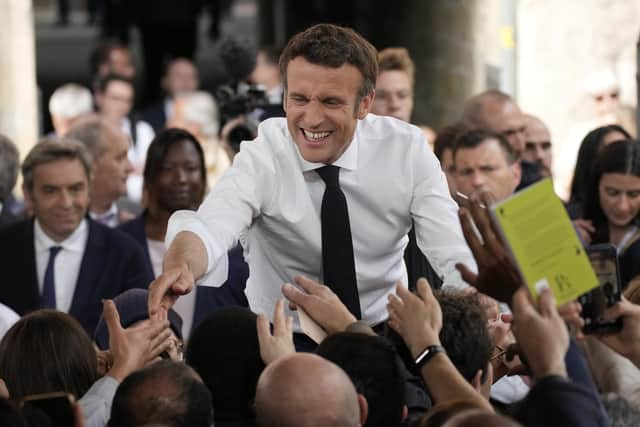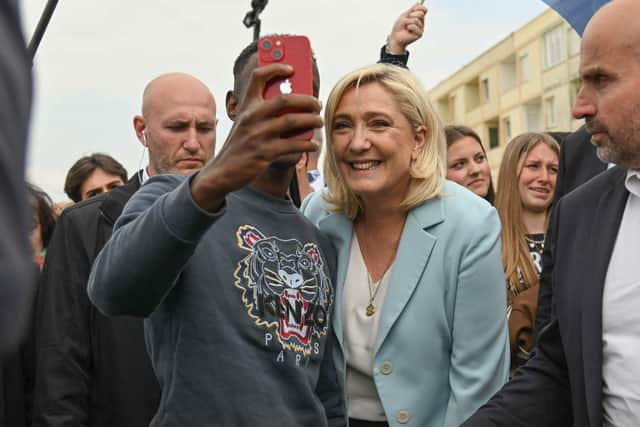French election: Remember what happened with Brexit, says Emmanuel Macron as he urges voters to turn out in run-off with Marine Le Pen
A victory in today’s run-off vote would make Mr Macron the first French president in 20 years to win a second term.
All opinion polls in recent days point towards a victory for the 44-year-old pro-European centrist – yet the margin over his nationalist rival appears uncertain, varying from six to 15 percentage points, depending on the poll.
Advertisement
Hide AdAdvertisement
Hide AdPolls also forecast a possible record high number of people who either cast a blank vote or stay at home and do not vote at all in this second and final round.


The April 10 first-round vote eliminated 10 other presidential candidates. Who becomes France’s next leader will largely depend on how backers of those losing candidates switch their allegiances today.
The question is a difficult one, especially for leftist voters who dislike Mr Macron but do not want to see Mr Le Pen in power either.
A second term for Mr Macron relies in part on their mobilisation, prompting the French leader to issue multiple appeals to leftist voters in recent days.
The president warned voters this week on France 5 television: “Think about what British citizens were saying a few hours before Brexit or (people) in the United States before Trump’s election happened: ‘I’m not going, what’s the point?’ I can tell you that they regretted it the next day.


“So if you want to avoid the unthinkable … choose for yourself.”
The two rivals both appeared combative in the final days before today’s election, clashing in a one-on-one televised debate on Wednesday.
Mr Macron argued that the loan Ms Le Pen’s party received in 2014 from a Czech-Russian bank made her unsuitable to deal with Moscow amid its invasion of Ukraine.
Advertisement
Hide AdAdvertisement
Hide AdHe also said her plans to ban Muslim women in France from wearing headscarves in public would trigger “civil war” in the country that has the largest Muslim population in Western Europe.
“When someone explains to you that Islam equals Islamism equals terrorism equals a problem, that is clearly called the far-right,” Mr Macron told France Inter radio.
In his victory speech in 2017, Mr Macron had promised to “do everything” during his five-year term so that the French “have no longer any reason to vote for the extremes”.
Five years later, that challenge has not been met. Ms Le Pen has consolidated her place on France’s political scene, the result of a years-long effort to rebrand herself as less extreme.
Her campaign this time has sought to appeal to voters struggling with surging food and energy prices amid the fallout of Russia’s war in Ukraine. The 53-year-old candidate said bringing down the cost of living would be a top priority if she was elected as France’s first woman president. She criticised Mr Macron’s “calamitous” presidency.
Comments
Want to join the conversation? Please or to comment on this article.